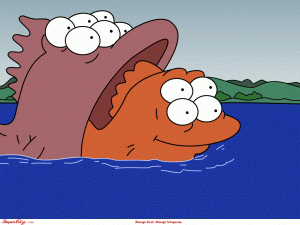
Public opinion polls have consistently shown that 40 to 45% of Americans do not believe the theory of evolution. This puts high school biology teachers in a pedagogical dilemma: How do they teach the state-mandated science curriculum in the face of conflicting community, student, and personal views about the merits of evolution and creationism? How do biology teachers’ decisions about how to resolve these dilemmas foster pro- or anti-evolution sentiments in the next generation?
According to new research by political scientists Michael B. Berkman and Eric Plutzer, “[h]igh school biology teachers play a crucial role in whether a high school biology course reinforces the scientific consensus or whether it confers legitimacy on creationist perspectives.” Biology teachers differ in whether they portray the science of evolution as controversial, in whether they feel obligated to be “fair” to pro- and anti-evolution perspectives, and in whether they portray religion and science as incompatible.
Where do high school biology teachers learn to walk these fine lines—often inadvertently undermining the validity of the curricular material they present to students? Berkman and Plutzer’s work point to the roles of teachers’ personal values, the depth of their scientific knowledge, their confidence in their scientific training, and their pedagogical philosophy. They also argue that high school biology teachers are not well prepared in their training programs to confidently master relevant scientific material or to help students to work through conflicts between their faith and scientific evidence. The result is an unhappy compromise in the messages students’ receive.
Read the full article here:
Michael B. Berkman and Eric Plutzer. 2015. “Enablers of Doubt: How Future Teachers Learn to Negotiate the Evolution Wars in Their Classrooms.” The ANNALS of the American Academy of Political and Social Science 658:253-270




Comments